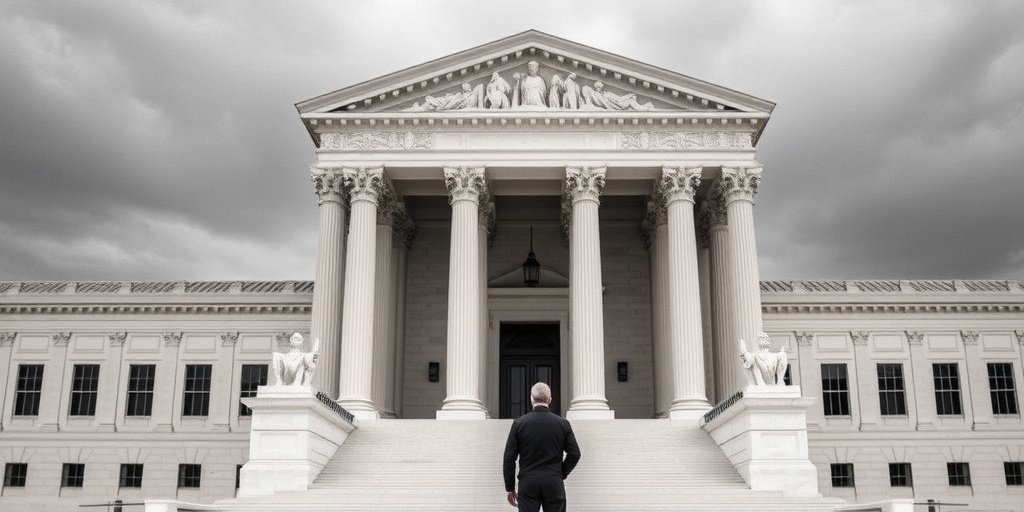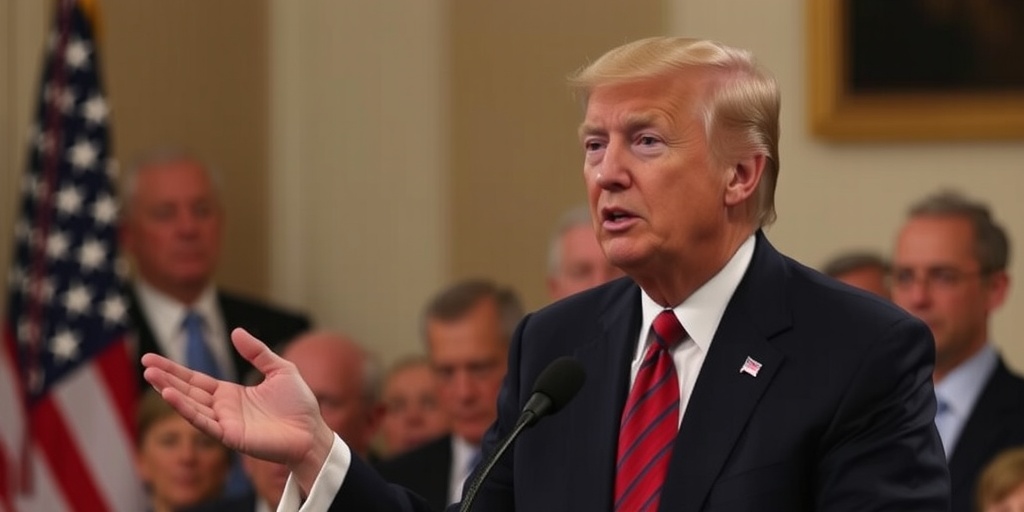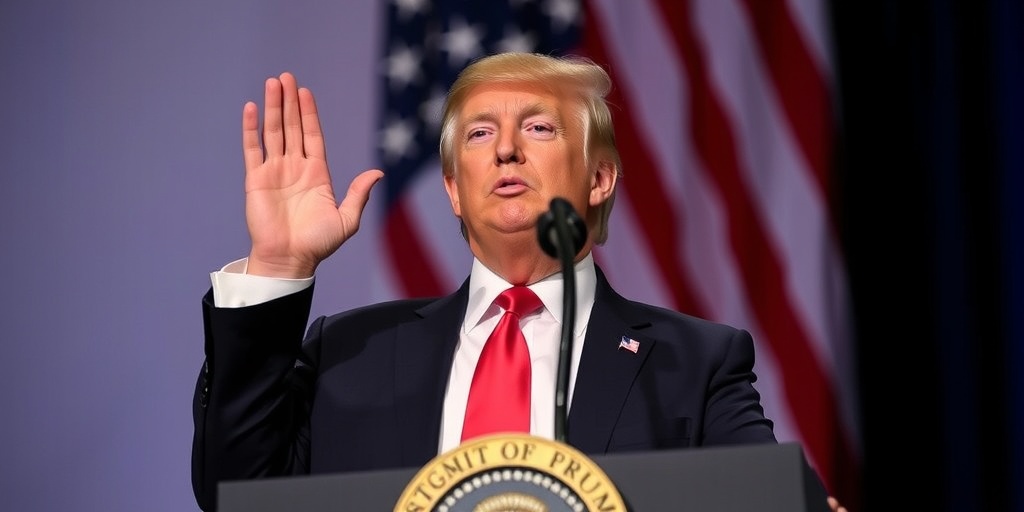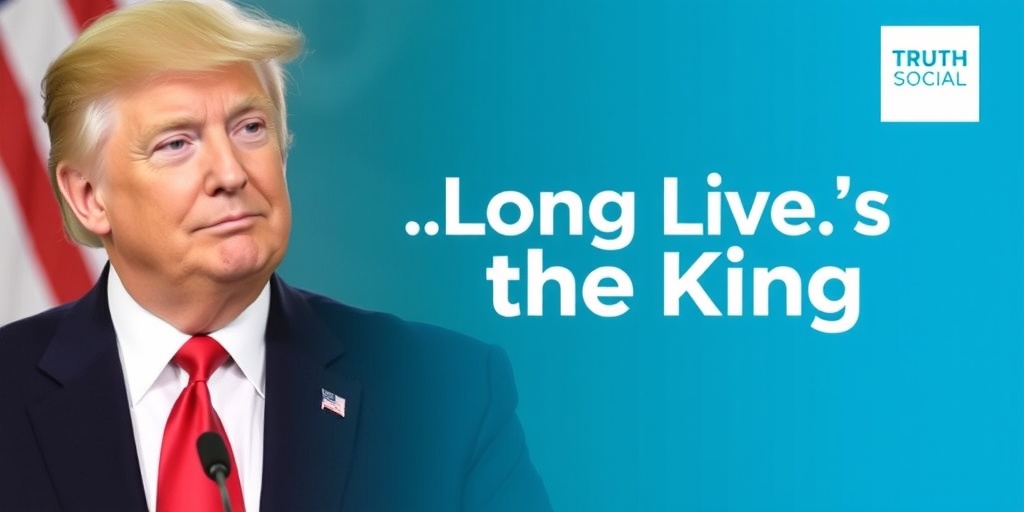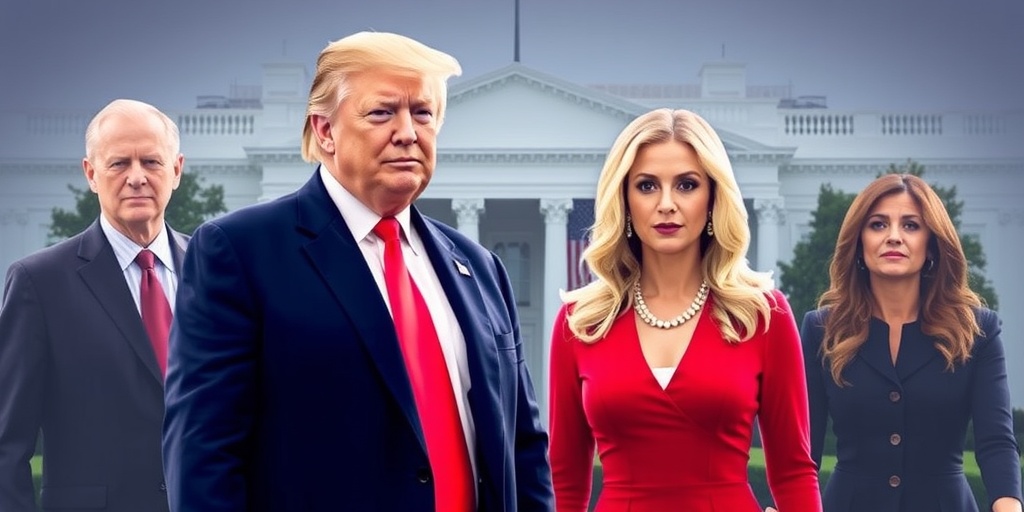Now Reading: Trump Labor Nominee Lori Chavez-DeRemer Under Pressure in Senate Hearing
-
01
Trump Labor Nominee Lori Chavez-DeRemer Under Pressure in Senate Hearing
Trump Labor Nominee Lori Chavez-DeRemer Under Pressure in Senate Hearing
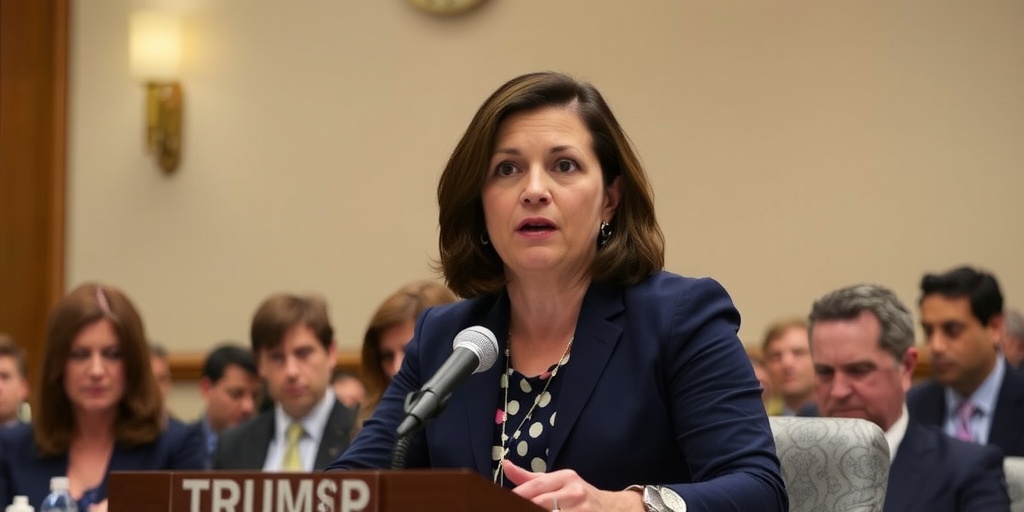
Challenging Senate Confirmation Hearing for Trump’s Labor Secretary Nominee Lori Chavez-DeRemer
Lori Chavez-DeRemer, President Trump’s nominee for labor secretary, faced intense scrutiny during her Senate confirmation hearing on Wednesday, with questions from both Republican and Democratic senators focusing on her past support for pro-union legislation. This topic has emerged as a potential sticking point that could complicate her nomination process.
Chavez-DeRemer, a former Republican congresswoman from Oregon, was notably questioned about her position on the Protecting the Right to Organize (PRO) Act. This extensive piece of legislation aims to bolster collective bargaining rights and has been a key priority for Democrats but has yet to pass in Congress. Chavez-DeRemer co-sponsored the PRO Act during her time in Congress, making her one of the few Republicans to show support for the measure.
When asked if she still endorsed the PRO Act, Chavez-DeRemer skirted the question, emphasizing her current role as Trump’s nominee rather than a lawmaker. “I do not believe that the secretary of labor should write the laws,” she stated firmly during her testimony before the Senate Health, Education, Labor, and Pensions Committee. “It will be up to Congress.”
However, under probing questions from Senator Rand Paul of Kentucky, Chavez-DeRemer conceded that she no longer supports certain aspects of the PRO Act. These aspects, as highlighted by Paul, could be perceived as undermining "right-to-work" states, where labor unions face significant legal and political challenges to their organizing efforts.
The atmosphere in the hearing room was noticeably different from typical confirmations, underscored by the presence of Teamsters union members donning their branded clothing. Chavez-DeRemer framed her connection to the union—she is the daughter of a longtime Teamster—as a significant aspect of her background. “My journey is rooted in the values instilled by my father, a proud Teamster who worked tirelessly for over 30 years,” she remarked during her opening statement.
The context surrounding her nomination is complex. The Teamsters’ president, Sean O’Brien, recently steered support towards Chavez-DeRemer, recommending her for the labor role to Trump. Moreover, the union withheld endorsements during the recent presidential race, which was viewed by many as a strategic gain for Trump. In an editorial critical of her selection, The Wall Street Journal characterized it as a potential “quid pro quo” between Trump and O’Brien.
Chavez-DeRemer previously served as the mayor of Happy Valley, Oregon, and lost her congressional seat in the November elections to a Democratic challenger. Alongside her co-sponsorship of the PRO Act, she also backed the Public Service Freedom to Negotiate Act, which aimed to ensure collective bargaining rights for public sector employees throughout the country.
Her candidacy underscores the divisions within the Republican Party, as highlighted by Senator Bill Cassidy of Louisiana, who said he needed a clearer understanding of her stance on Democratic legislation that could adversely affect Louisiana’s right-to-work statute. After the hearing, Cassidy appeared more satisfied with her responses regarding the PRO Act.
On the other hand, some Republican senators are re-evaluating their traditional positions regarding labor unions. Senator Josh Hawley of Missouri, for instance, has recently advocated for a pro-labor approach within conservatism and praised Chavez-DeRemer’s record during the hearing as “really outstanding.”
Despite the support from some quarters, Senator Rand Paul expressed concern that Chavez-DeRemer could lose the backing of at least a dozen Republican senators during the Senate vote. Her nomination may hinge on whether she can garner Democratic support; Senator Bernie Sanders of Vermont, an independent who leads the committee’s minority members, provided cautious feedback. While he acknowledged her record as "very good," Sanders also raised doubts about whether she would prioritize federal labor laws or operate as a mere “rubber stamp” for Trump’s administration.
During the hearing, Democrats queried Chavez-DeRemer about her views on Trump’s recent executive actions, particularly those undermining federal workforce protections and empowering business figures like Elon Musk. Committee members sought her assurance on the safeguarding of sensitive information within the Labor Department and compliance with appropriations laws.
In her responses, Chavez-DeRemer assured senators that she did not expect to be asked to break the law, and declined to support a federal minimum wage increase, stating instead that it should be determined by Congress. Questions also arose regarding her plans to address child labor violations and the visa shortages impacting industries reliant on seasonal labor, a concern highlighted by Senator Lisa Murkowski of Alaska.
As the confirmation process continues, Chavez-DeRemer’s ability to navigate the complex political dynamics surrounding labor issues, while maintaining fidelity to Trump’s agenda, will be crucial in determining her fate within the Senate. Her assertion—“I support the American worker”—was met with skepticism, particularly from Sanders, who interjected with pointed questions about her shifting stance on the PRO Act. The outcome of her nomination remains uncertain as senators weigh the implications of her confirmation not only for the Department of Labor but also for broader party allegiances and the future of labor rights in America.
Stay Informed With the Latest & Most Important News
Previous Post
Next Post
-
 01New technology breakthrough has everyone talking right now
01New technology breakthrough has everyone talking right now -
 02Unbelievable life hack everyone needs to try today
02Unbelievable life hack everyone needs to try today -
 03Fascinating discovery found buried deep beneath the ocean
03Fascinating discovery found buried deep beneath the ocean -
 04Man invents genius device that solves everyday problems
04Man invents genius device that solves everyday problems -
 05Shocking discovery that changes what we know forever
05Shocking discovery that changes what we know forever -
 06Internet goes wild over celebrity’s unexpected fashion choice
06Internet goes wild over celebrity’s unexpected fashion choice -
 07Rare animal sighting stuns scientists and wildlife lovers
07Rare animal sighting stuns scientists and wildlife lovers













